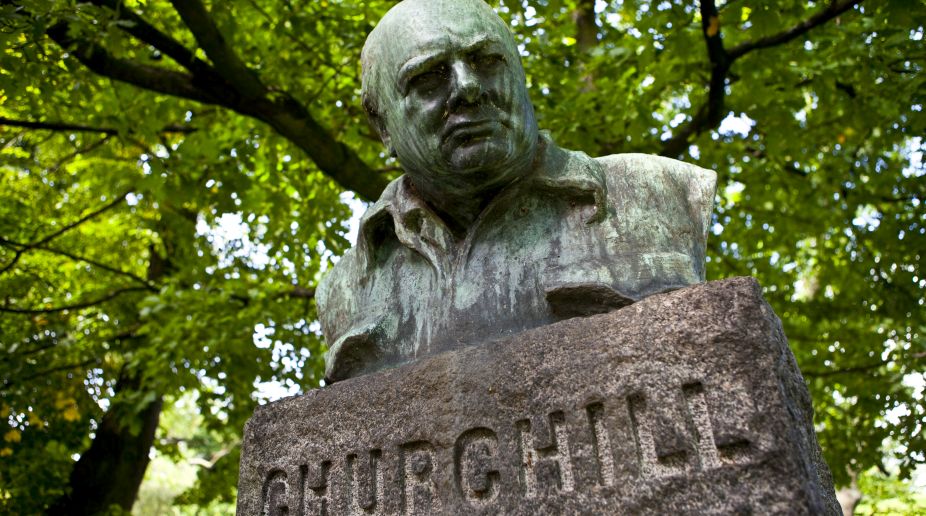Born in 1533, Michel De Montaigne, who studied law to subsequently become counsellor to the Parlement of Bordeaux, decided to devote himself to reading and writing. Out of his many works, The Complete Essays, is rated to be one of the 100 famous books of all time. In one of the essays called “On books”, he wrote, “The most appropriate historians and writers for me are those who linger more over motives than events. It is important that we leaf our way through different authors, ancient and modern, so as to learn about the ‘matter’ which they treat in their divergent ways.”
It is in this context that one must study a particular essay by Winston Churchill where he approached the question of alien life. Although Churchill’s writings mused on topics like, what will the postwar world look like? Or how best to save the British Empire, he wrote a significant treatise entitled, A History of the English Speaking Peoples, a four-volume history of Britain from Caesar’s invasions in 55 BC to World War I in 1914. The legendary leader also focused on other topics, which in their singularity were diverse and thought provoking. One example was, “Is there life on other planets?” He reflected Montaigne’s thoughts by writing lucidly on “matter” that was inspired by the study of astrophysics, expressed, as though, through a scientist’s mind. This long lost 11-page typewritten essay emerged because of astrophysicist Mario Livio’s article written in a recent edition of the journal Nature, where Livio analysed Churchill’s essay.
Churchill concluded the essay with a rational mind, “With hundreds of thousands of nebulae, the odds are enormous that there must be immense numbers, which possess planets whose circumstances would not render life impossible.” He wrote this essay just before World War II and more than half a century before exoplanets, or, planets that orbits a star outside the solar system, was discovered. His publisher’s family handed over the essay to the US National Churchill Museum, in the 1980s.
The museum’s director, Timothy Riley, thrust the typewritten essay into the hands of Livio, who affirmed that Churchill had indeed done his homework, to write on such a complex subject. Churchill’s erudite notions were, perhaps, the result of his interactions with Frederick Lindemann, Churchill’s friend and his official scientific adviser.
Livio writes that Churchill’s thought process on this diverse topic was remarkable. The essay begins with a dramatic question, Are we alone in the universe? He reasons with rational thoughts, reflecting on the essential conditions for life to exist, beginning with the first requisite, which is liquid water. Churchill further elaborates that forms of life could indeed depend on other forms of liquid, but by our knowledge, at present, life is not supported by anything other than water. That is exactly what scientists pursue today; they follow water to try and establish new forms of life. What does it take for liquid to be there? His question explains what the world of science terms as “the habitable zone.” He articulates that in our own solar system, “only Mars and Venus could possibly harbour life outside Earth.” He noted that other planets like the moon and asteroids lacked sufficient gravity to trap gasses for the atmosphere. This revealed his “healthy scepticism”, writes Livio, who specifies the rationale, which possibly encouraged Churchill to write this essay. The essay was written prior to a significant world war, making Churchill reflect on the fate of the world. It was also on the eve of his becoming Britain’s Prime Minister.
Churchill’s skill as a writer helped support his lavish lifestyle and his competence won him the 1953 Nobel Prize For Literature, which included a cash award equivalent to US $2,75,000 today. He read books that spanned a wide spectrum of subjects and as this narrative signifies, he was interested in science. He anticipated the power of atomic weapons and their threat to mankind. He envisaged a bomb, “no larger than an orange,” enough to destroy a township.
Two out of three essays on scientific topics were published in 1942, but this essay of Churchill’s, on life beyond Earth, being unpublished, remains a mystery. It is important as a topic and was a reflection of Churchill’s mind during the troubled 20th century. His analysis of life existing elsewhere in the universe, of course, has no tangible evidence, but nevertheless, is plausible as a theory.











